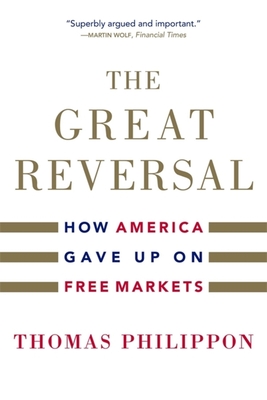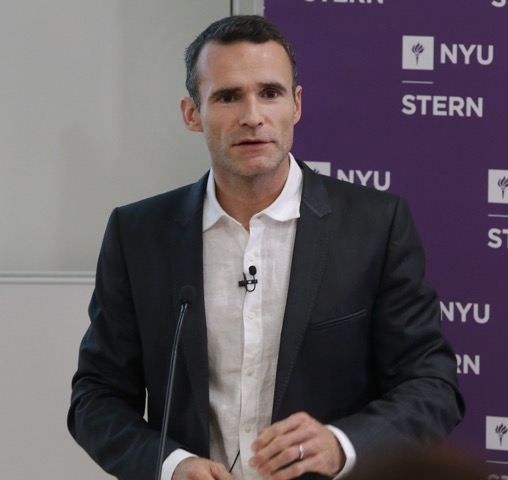

 Belknap Press
Belknap Press
The Great Reversal: How America Gave Up on Free Markets


Key Metrics
- Thomas Philippon
- Belknap Press
- Paperback
- 9780674260320
- -
- -
- Business & Economics > Free Enterprise & Capitalism
- English
 Secure Transaction
Secure TransactionBook Description
A Financial Times Book of the Year
A ProMarket Book of the Year
Superbly argued and important...Donald Trump is in so many ways a product of the defective capitalism described in The Great Reversal. What the U.S. needs, instead, is another Teddy Roosevelt and his energetic trust-busting. Is that still imaginable? All believers in the virtues of competitive capitalism must hope so.
--Martin Wolf, Financial Times
In one industry after another...a few companies have grown so large that they have the power to keep prices high and wages low. It's great for those corporations--and bad for almost everyone else.
--David Leonhardt, New York Times
Argues that the United States has much to gain by reforming how domestic markets work but also much to regain--a vitality that has been lost since the Reagan years...His analysis points to one way of making America great again: restoring our free-market competitiveness.
--Arthur Herman, Wall Street Journal
Why are cell-phone plans so much more expensive in the United States than in Europe? It seems a simple question, but the search for an answer took one of the world's leading economists on an unexpected journey through some of the most hotly debated issues in his field. He reached a surprising conclusion: American markets, once a model for the world, are giving up on healthy competition.
In the age of Silicon Valley start-ups and millennial millionaires, he hardly expected this. But the data from his cutting-edge research proved undeniable. In this compelling tale of economic detective work, we follow Thomas Philippon as he works out the facts and consequences of industry concentration, shows how lobbying and campaign contributions have defanged antitrust regulators, and considers what all this means. Philippon argues that many key problems of the American economy are due not to the flaws of capitalism or globalization but to the concentration of corporate power. By lobbying against competition, the biggest firms drive profits higher while depressing wages and limiting opportunities for investment, innovation, and growth. For the sake of ordinary Americans, he concludes, government needs to get back to what it once did best: keeping the playing field level for competition. It's time to make American markets great--and free--again.
Author Bio
Thomas Philippon is the Max L. Heine Professor of Finance at New York University, Stern School of Business. Philippon was named one of the “top 25 economists under 45” by the IMF in 2014. He has won the 2013 Bernácer Prize for Best European Economist under 40, the 2010 Michael Brennan & BlackRock Award, the 2009 Prize for Best Young French Economist, and the 2008 Brattle Prize for the best paper in Corporate Finance.
Philippon has studied various topics in macroeconomics and finance: systemic risk and financial crisis, the dynamics of corporate investment and household debt, financial innovation and financial regulation, Eurozone crisis. His recent book “The Great Reversal” (Harvard Press, 2019) focuses on the increasing market power of large firms.
He currently serves as an academic advisor to the Financial Stability Board and to the Hong Kong Institute for Monetary and Financial Research. He was previously an advisor to the New York Federal Reserve Bank, a board member of the French prudential regulatory authority from 2014 to 2019, and the senior economic advisor to the French finance minister in 2012- 2013.
Philippon graduated from Ecole Polytechnique, received a PhD in Economics from MIT, and joined New York University in 2003.
Research Interests
Macroeconomics
Corporate finance
Business cycles
Earnings management
Unemployment
Courses Taught
Corporate Finance Topics
Risk Management in Financial Institutions
Education
- Ph.D., Economics, 2003 -Massachusetts Institute of Technology
- M.A., Economics, 1998 - Delta-Ehess, France
- M.A., Physics, 1997 - Ecole Polytechnique, France
Source: NYU Stern
Videos
No Videos
Community reviews
Write a ReviewNo Community reviews